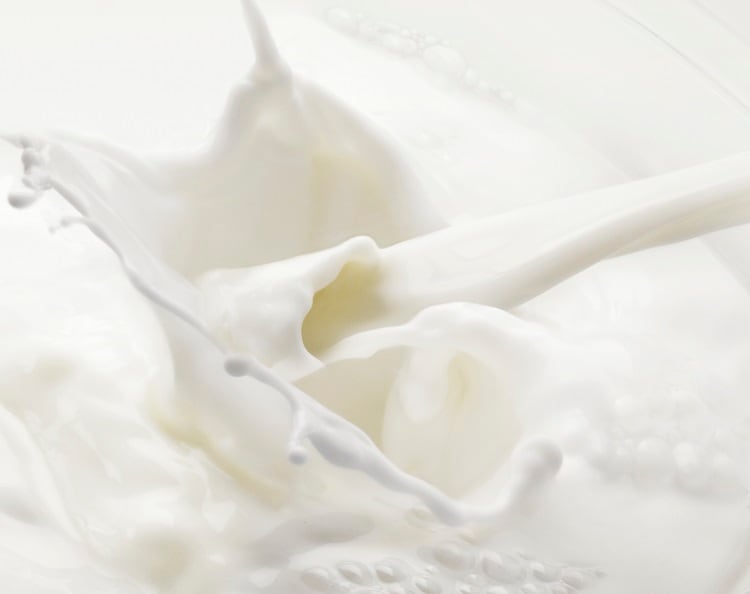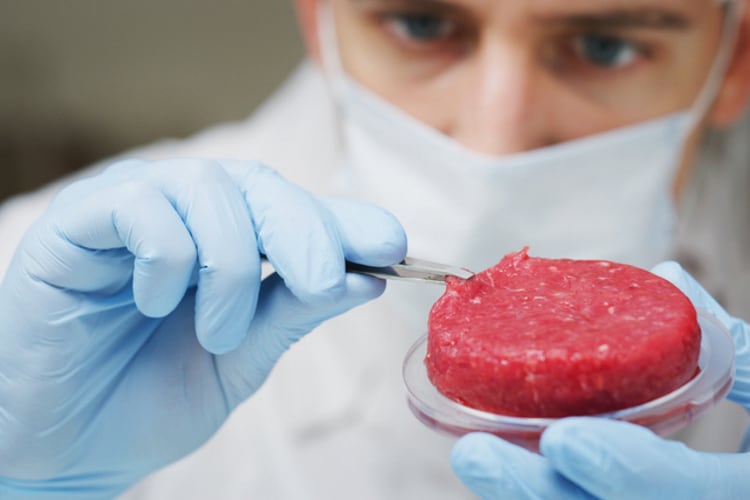As the next-gen dairy sector – whether that be cell-based or precision fermentation-derived dairy – nears maturity, significant questions remain around consumer understanding and interest.
Fresh research conducted by academics at Rowan University in the US and The University of Sheffield in the UK, a researcher at animal protection non-profit Mercy for Animals, and a researcher from animal-free dairy maker Formo, is seeking answers.
What is next-gen dairy?
Alt dairy is now a permanent fixture on the supermarket shelf.
Globally, the dairy alternatives market – which uses plant-based ingredients such as soy, almonds, oats, and rice to create milk, yoghurt, ice cream, and cheese-like products – was valued at approximately $22.6bn in 2020. Markets and Markets projects it will reach $40.6bn by 2026.
At the same time, innovators are working to bring a new category of dairy alternative products to market.
Cellular agriculture leverages synthetic biology and tissue engineering to create products that are molecularly identical to conventionally produced animal foods. In Israel, cell-cultured milk innovator Wilk is developing cultivated milk fat. In the US, BIOMILQ is working on cell-cultured human milk production.
Another method is precision fermentation, whereby microorganisms such as yeast are genetically-programmed to express complex proteins.
Start-ups leveraging precision fermentation to imitate cow-derived dairy include US-based Perfect Day, who has been selling its animal-free whey since 2019; Israel’s Remilk and Imagindairy; Estonia’s ProProtein; UK-based Better Dairy; and German operation Formo – which is making dairy proteins for fresh and aged cheeses.
As a majority of animal-free dairy operators are yet to reach the market, not enough is known about consumer understanding and interest in these novel technologies and products. Researchers are working to change that.
Without knowing more, many consumers ‘on the fence’
In a new study published in Frontiers in Nutrition, researchers conducted 10 focus group discussions with a total of 42 participants across the US and Singapore (where animal-free dairy is already approved for retail sale), as well as Germany and the UK (where animal-free dairy has not received regulatory approval).
The researchers noted respondents consistently raised questions about the technical process through which the products were created, as well as its overall safety for potential consumers.
While ‘very few’ participants within the ‘early adopter’ sample expressed strong initial opposition to the concept of animal-free dairy and its development, most were ‘on the fence’ as to whether they would be interested in ever consuming the product themselves, pending clarifying information.
“Ultimately, the respondents called for transparent communication from all parties involved in developing, regulating, and selling animal-free dairy, and from there believed they could make a decision as to whether it was something they were interested in consuming,” noted the study authors.
The connection to GMOs was confusing for many of the participants. Yet on the whole, consumers were ready to rationalise the use of novel technologies to counteract problems they saw in the food system – even if questions of ‘naturalness’ were present in many of the focus groups.
Animal-free dairy a ‘viable choice’
Concerning consumer preferences and priorities, researchers observed a few participants express either ‘enthusiastic support’ or ‘steadfast disinterest’.
On the whole, however, participants perceived animal-free dairy as ‘another viable choice’ to add to the market of dairy and its alternatives.
“Whether it became part of their actual eating habits would depend mostly on classic food choice factors, notably its organoleptic qualities and its price parity with standard options, a common refrain in research on alternative proteins,” noted the study authors.
As to the potential health benefits of animal-free dairy, a number of participants were attracted by the lack of lactose in the product. However, they wondered whether the general nutritional profile of animal-free dairy would ‘stack up’ to conventional dairy.
Whether animal-free dairy should be categorised as vegan or plant-based, or indeed, whether it should be considered real dairy, was another question raised.
“The general consensus was that participants were open to the idea of animal-free dairy as a choice. Some expressed enthusiasm about trying animal-free dairy, while many expressed a desire to taste-test it before making any further determination as to whether they were truly interested.”
Impact for industry and policymakers
For industry selling, or hoping to commercialise, animal-free dairy products, this research highlights that beyond satisfying the sensorial, functional, and price expectations of consumers, ‘thoughtful and inclusive’ discourse with society will be ‘central’ in determining consumer interest in animal-free dairy, noted the study authors.
“In this way, companies should understand their role not merely as contributors to already packed grocery aisles, but also as participants in a discussion about our relationship with the food we eat and the future of food system reform.”
Oscar Zollman Thomas, researcher at Formo and study co-author, suggested there is work for industry to do.
“While it’s clear there’s latent enthusiasm for addressing the problems we work on, it’s far from a done deal in terms of consumer perceptions,” he told this publication.
“Lots of the societal faith extended to our industry will come from honesty, transparency, and respected independent regulation.
“It’s our industry’s job that we rise to those expectations.”
As to what learnings policymakers can take from the research, Thomas hopes policymakers will start to internalise the benefits offered by precision fermentation – which he said includes more robust food chains, lower resource usage, ‘far better’ emissions profiles, and less animal suffering.
“This report makes it clear that citizens also clearly see these benefits and would welcome proactive policymaker support for the industry. It can be a great win for policymakers seeking to build a better future, while also offering tangible upsides today.
“That can take the form of proactive communication, support and regulation between start-ups and policymakers, to achieve similar levels of trust to products on the shelf today.”
Source: Frontiers in Nutrition
‘Framing the futures of animal-free dairy: Using focus groups to explore early-adopter perceptions of the precision fermentation process’
Published online 3 October 2022
DOI: https://doi.org/10.3389/fnut.2022.997632
Authors: Garrett M. Broad, Oscar Zollman Thomas, Courtney Dillard, Daniel Bowman, and Brice Le Roy.




